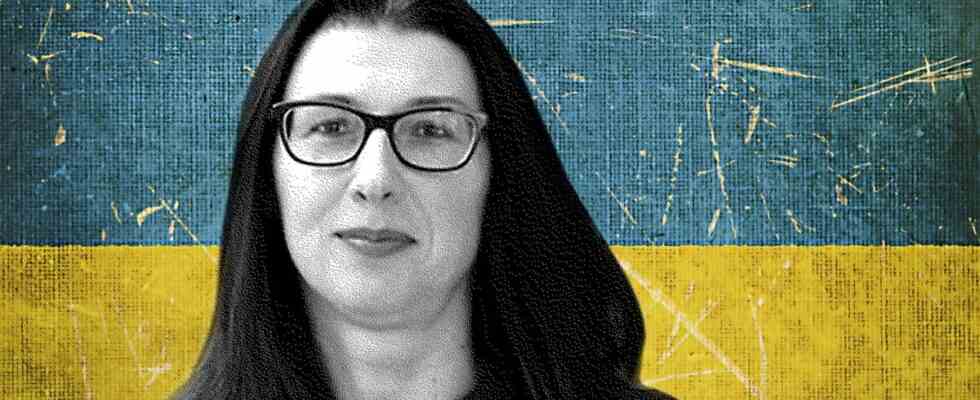On Friday morning, April 8th, I finally get to write. I look back on a full and exhausting week – aid deliveries came on four days. Two of them later than planned: The transport of the TH Lübeck and the Architekturforum Lübeck is stuck in Satu Mare, we learn from the drivers on Saturday, the alternator is broken. We are trying to activate our network in Romania. Ultimately, the two get help from the fire department. However, it takes a while before the car can be repaired – so we don’t greet each other at the border until two days later, on Monday morning. But T. and M. are relaxed and in a good mood. Lübeck and Czernowitz have been working together for many years – especially in architecture and urban planning, and good friendships have also developed. We do the handover in the so-called “neutral area” between the countries. The small gray parking lot became the most important meeting place for our team, who would have thought it. There is so much talking, laughing and hugging as in all the years of its existence.
Among the medications at Halle University Hospital is morphine, an opiate and an urgently needed drug in pain therapy. We learn a lot: The handover can only take place at two hospitals in Chernivtsi, and it is a complex bureaucratic process. Some documents have to be submitted later, we also have to ask our colleagues in Germany for a certificate. But everything is possible, no one is annoyed, it will be fine.
In addition, we received a large shipment of aid from the Johanniter and a shipment of food, paid for with donations from the thought roof network. The processes – whether in the large courtyard of the Faculty of Mathematics, where there is a warehouse, or in the offices of the “student parliament” in the student village – are now routine: It is sorted and divided, boxes or pallets are attached with notes – it says local – or institution names where the relief supplies go. A part remains for the needs of the “native” refugees. Then cars or buses come, everything is loaded again and goes on its way. There are short lines of communication and short acquaintances, you don’t ask for ID, it’s enough if someone from our circle says, “There is an acquaintance / friend who is going to Chernihiv / Kharkiv / Kyiv / Vinnytsia …” And no, we are not naive, we know that there is abuse and unfairness in our country even in times of war, we have to live with the risks, just as we currently have to live with many risks.
I imagine it’s horrible: Yesterday in my own apartment and today in a run-down dormitory
On Tuesday in the student village, S. and I go to two dormitories with the director. We want to photograph the devices purchased from the donations from the Thought Roof network and put the stickers on them: 16 hotplates, two washing machines and a dryer. Feel this way I put myself in the time of the binational seminars with the Catholic University of Freiburg. For more than ten years I have been able to accompany the exchange between our universities as an interpreter, many topics from social work were dealt with. Theoretical seminars were always combined with visits to the social services, I personally learned a lot and feel very influenced by it. We also had the issue of migration, we were allowed to visit refugee homes in Freiburg, we met people who had fled from Syria or Afghanistan. It all seemed so far away, except for the empathy. A study material just.
Now I’m in a different role in such a facility and I recognize a few things – stories, images, even smells. I can imagine it being awful: Yesterday I was in my own apartment and today I am in a shared room in a rather run-down dorm. But it’s probably better than spending weeks in the basement under constant fire. The director tells a little. Some come, settle in and ask how they can help. Others complain about bad conditions, rightly so. It has also happened several times that people have left without having checked out, their room keys could not be found. If you reached each other by phone, they were already abroad and said they would take the keys with them just to be on the safe side, in case things hadn’t worked out at the border. Different human behavior patterns, there is nothing new under the sun.
The many tasks cost me a lot of physical strength, but it can’t be compared to how much mental strength it costs me to do it Ria Novosti published “Licence to Murder”: The article (although I don’t really know a generic term for it) “What Russia should do with Ukraine” was written by the Russian political technologist Timofej Sergejzew, who came from Ukraine. Hopefully the text will also be of interest to the international courts. For the German readers it should be even more so. The German translation of it should be available by now, otherwise you should ask your Russian-speaking acquaintances or friends for the translation. You are guaranteed an absolutely unforgettable read.
Read more episodes of this column here.

